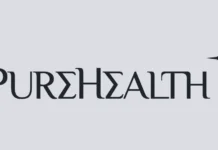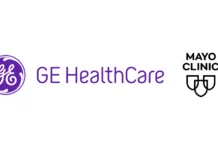Orion Health announced its machine learning service, Amadeus Intelligence to help the health sector reduce operating costs and improve patient care. Led by ground-breaking research by Precision Driven Health (PDH), a New Zealand partnership between Orion Health, Auckland University and Waitemata District Health Board, the company is exploring meaningful ways to minimise wastage in the healthcare sector and help clinicians make more accurate decisions at the point of care.
More than $6.5 trillion is spent on healthcare each year globally, yet typically between 20-40% of spend is wasted on unnecessary services and excess administration. With an ageing population and a growing number of people with chronic illnesses growing globally, the issue is set to worsen.
Speaking from the HIMSS conference in Las Vegas, Ian McCrae, CEO of Orion Health said, “With more than 20-40% of wastage in healthcare on costly administration and avoidable hospital readmissions, data analysis combined with the rise of machine learning can help minimise this wastage. Orion Health’s Amadeus Intelligence will use machine learning models initially to predict patient costs and readmission risks, and analyse clinical and financial outliers. This will improve decision-making at the point of care and target resources including interventions, which will result in significant cost savings.”
“We’re yet to see the true impact of machine learning on healthcare. The last decade has been focused on integrating IT systems and capturing massive amounts of information about patients and their environments. The next decade will be to connect all that data and use machine learning for daily healthcare decisions, driving improved care, operational efficiencies, and cost effectiveness,” said Mr McCrae.
Unlike most current uses of machine learning, Amadeus Intelligence ingests and combines multiple datasets from diverse data sources to predict multiple outcomes – financial, operational and administrative.
“The key to making a meaningful impact on healthcare is in the accuracy of the prediction, and the ability to respond,” said Mr McCrae. “Tapping into the vast amounts of data available through many different sources – including relevant genomic, socio-economic and behavioural data, information from devices, and data based on demographics and climate – will engender better decision-making, drawing on information from entire populations to treat and manage a person’s health. Today healthcare organisations need more accuracy in their predictive analytics to reduce operational costs and improve patient care and outcomes.”
Readmission rates remain a costly challenge for healthcare organisations. With 17.6% of hospitalisations in the U.S. resulting in a re-hospitalisation within 30 days, an estimated 76% of those re-hospitalisations are potentially avoidable, costing $30 billion. PDH has completed research projects that use a breadth of data types and apply machine learning models to achieve greater predictive accuracy, calculating potential savings four times higher than current predictive models. Using machine learning techniques, healthcare can expect larger reductions in readmission rates achieved in a far more cost effective manner.
The Health Outcome Prediction Engine (HOPE) is another application where machine learning models will help to reduce the cost of healthcare and save lives. HOPE is designed to identify patients at risk of an Abdominal Aortic Aneurysm (AAA), a silent killer. Based on epidemiological studies, 800 New Zealanders were identified through data analysis of patient records as likely candidates for AAA during a precision screening trial. All the patients identified during the precision screening trial were contacted and 632 took up the offer of an ultrasound. 36 were found to have AAA, a prevalence rate of 5.5% and almost exactly the rate that was predicted by the data analysis.
“Precision screening presents a huge opportunity for the health sector, where data science can help target health interventions to those with the greatest need,” said Mr McCrae.
With more than 20 years’ experience building technology for the healthcare sector, Orion Health is initially working with select customers to apply machine learning to deeply mine the data within these organisations. While still in its infancy, data analysis combined with the rise of machine learning, will provide clinical and financial insights to accelerate precision medicine, improve personalised treatments and maximise cost effectiveness of interventions.
Machine learning is perfectly suited to Orion Health’s existing product set. Using Orion Health’s Amadeus Platform and Rhapsody to ingest and manage multiple data types in large volumes and Amadeus Analytics to create cohorts based on existing and new insights, Amadeus Intelligence will apply machine learning to the data on the platform to enhance precision and prediction.
Greater precision in identifying at risk populations will also transform the way clinicians work at the point of care. Unique to Orion Health, Amadeus Analytics and Amadeus Intelligence service connect seamlessly to its Amadeus Coordinate, care coordination tools including Care Plans and Pathways and Care Coordinator Activity Management which create actions and workflow to support identified patients.


















